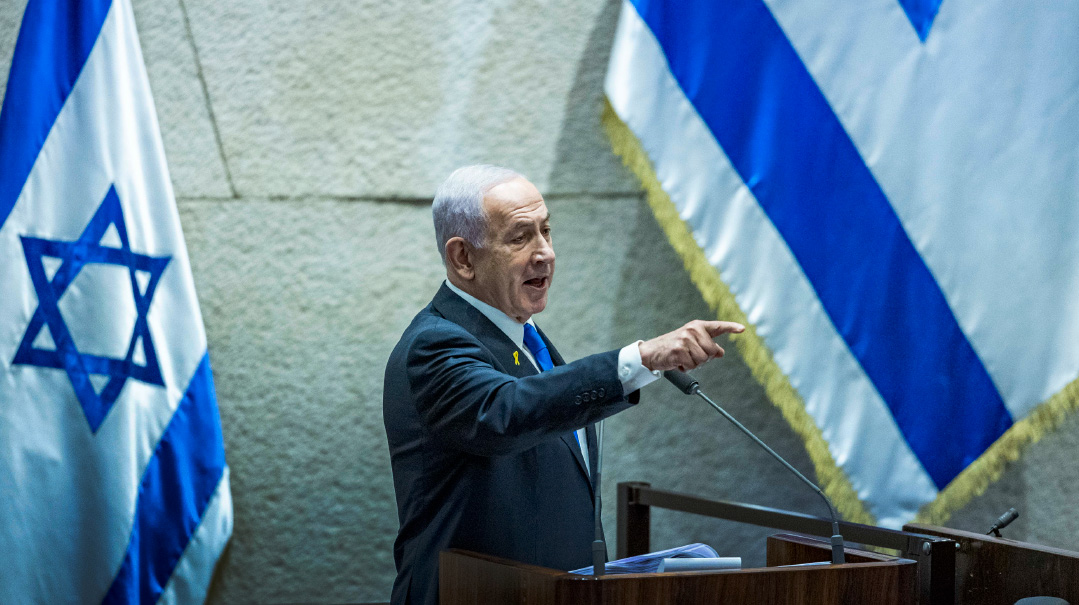A Year of Fiasco in the Middle East

No end in sight to the Biden administration's growing pains

The Biden administration celebrates its first “birthday” next week on January 20, with no end in sight to its growing pains.
With midterm congressional elections ten months away, voters will soon ask if they’re better off financially than they were last year. Tweak that question and apply it to foreign policy, specifically in the Middle East, one might ask if the region is safer and more stable after one year of Biden.
It’s not entirely fair to compare Biden only to Trump. All administrations inherit a complex set of problems, policies, and relationships. In the Middle East, many of those are hundreds of years old and predate America.
Three weeks ago, a senior administration official briefed the media, recapping the highlights of the first year of Biden’s Middle East policy, as he saw them, making it clear that the administration had turned its back on the “maximalist and quite grandiose goals” of his predecessors to focus instead on “sound strategy and statecraft.”
It all sounds pragmatic, but the execution has been poor, as we will see from a closer analysis of five major trouble spots and relationships that have taken a turn for the worse.
Flight from Afghanistan
Geographically, Afghanistan is part of Central Asia, but it’s a Muslim state like much of the Middle East. The spillover effect of the Taliban takeover following America’s hasty and chaotic withdrawal is certain to destabilize the region.
For a foreign policy team that prides itself on experience, the Biden administration failed a major test. Michael Rubin, a senior fellow at the American Enterprise Institute, added the Afghanistan debacle to his “long and sorry history of unilateral withdrawals,” including America’s 1973 retreat from Vietnam, the Soviet Union’s own 1989 escape from Afghanistan, Israel’s military withdrawal from Lebanon and the Gaza disengagement, and Obama’s 2011 withdrawal from Iraq, where ISIS and Iran filled the vacuum. Rubin says while the Biden administration contends it needs to redeploy resources to vie with China, it has unwittingly strengthened China, who, along with Russia, now sell themselves throughout the region as more dependable allies than America.
Floundering with Iran
Let’s give the Biden administration the benefit of the doubt. Let’s presume they sincerely believe that Iran abided by the terms of the 2015 nuclear agreement initiated by the Obama administration. Let’s assume Trump’s decision to trash the agreement handed Iran a pretext to enrich uranium to weapons-grade levels. For argument’s sake, let’s also agree with a slew of academic papers that consistently show how sanctions — against any country — fail the vast majority of the time to produce any desired change of behavior.
Conceding all that, how does the administration justify its submissive attitude in the Vienna talks, where Iran stalls for time while the US and its negotiating partners clamor to restore a deal with more holes than Swiss cheese, instead of applying pressure to achieve a tougher and more enforceable deal?
It’s no wonder that the Israeli government and top IDF officers are on edge. Bill Clinton fooled himself and the world in 1994, announcing a nuclear deal with North Korea, only to see Pyongyang test an atomic weapon 12 years later. The same fate awaits Biden with Iran, except this time, the clock is ticking faster.
Falling Out with Israel
In the above-mentioned briefing three weeks ago, the same senior administration official repeated Biden’s shopworn line, “If Israel did not exist, we would have to invent it.” It’s recycled from Biden’s 1980 senatorial campaign and wouldn’t even draw applause at an AIPAC conference, if they ever hold one again.
Biden repeats the same mistakes as previous administrations — both Democratic and Republican — with its fixation on settlements. They have dropped their gambit to reopen a Palestinian consulate in Jerusalem, thanks to steadfast Israeli resistance, but blundered badly by abstaining on a UN resolution that upheld the right of return for Arabs who left Israel — most of them voluntarily — during the 1948 War of Independence. As usual, there was no mention of the estimated 850,000 Jews vengefully expelled from Arab countries in that same era.
There are some pluses, mostly passive, such as not reversing Trump’s transfer of the US embassy to Jerusalem or reversing his recognition of Israel’s Golan Heights annexation, but that seems to be a reluctant endorsement. There’s also the ongoing holdup in $1 billion in emergency funding for Iron Dome, although Republicans — namely Senator Rand Paul — deserve much of the blame.
Forgoing the Abraham Accords
The administration pays lip service to the Abraham Accords, with its potential to transform the region and Israel’s relations with the larger Muslim world. They have floated some potential new signatories as trial balloons, namely Libya and Indonesia, but Biden lacks Trump’s bold, transactional mindset that speaks to the autocrats who wield power in the bazaar of Middle East politics.
Without forward momentum, the deals already struck are at risk of stagnating, especially when Sunni Muslim nations watch the US fixation on Iran with fright. Dr. Doron Matza, a senior analyst at the Begin-Sadat Center, noted that “the recent flirtation some Gulf States are having with Iran reflects their understanding of the change in American attitudes under the Biden administration.”
Those shifts, Dr. Matza contends, “undermine the strategic rationale of the Abraham Accords, one of which was to form an iron wall against Iranian aggression.”
Flip-Flopping on Saudi Arabia
Biden campaigned on the platform of reassessing relations with Saudi Arabia, in the wake of the royal family’s involvement in the murder of Jamal Khashoggi, a powerful and influential opponent of the regime. Human rights activists who applauded that position were thrilled when Biden, in his first week on the job, froze a $500 million arms sale that was still pending when Trump left office. A few months later, Biden capitulated and allowed that to go through. For good measure, he tacked on another $650 million arms sale in November.
At the same time, the administration cut military aid and logistical support to the Saudis in their conflict against Iranian-supported Houthi rebels. The Houthis control a large swath of northern Yemen along Saudi Arabia’s border, exploiting their positions to launch an average of one attack a week with ballistic or cruise missiles against Saudi military and petroleum infrastructure. The military sales Biden approved cover air defense missiles that can’t be used to attack ground targets.
Biden’s idea of deterrence includes an occasional State Department condemnation of Houthi aggression, or asking them nicely to stop attacking the Saudis, says Seth Jones, senior vice president of the Center for Strategic and International Studies.
Perhaps the State Department is wary of offending the Houthis’ Iranian sponsors. Or perhaps State is too busy scouring satellite photographs for evidence of Israeli settlement building, which in their worldview, may pose a far greater threat to world peace than Iran gaining a chokehold over global oil shipments.
(Originally featured in Mishpacha, Issue 894)
Oops! We could not locate your form.







